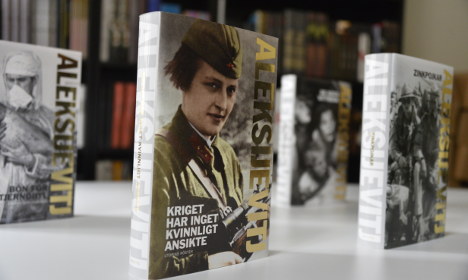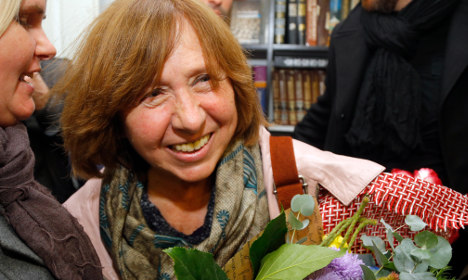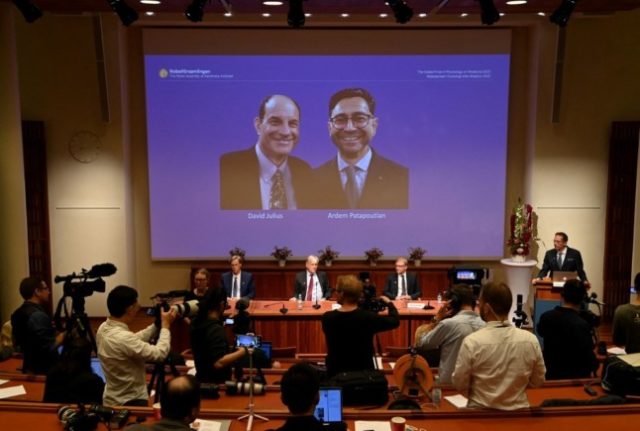While some customers and staff were hugely excited by her win, many told the AFP news agency that they had never heard of Alexievich despite the fact that she lives in the Belarusian capital.
None of her books, written in Russian and dealing with sensitive issues around the Second World War, the Soviet war in Afghanistan and the Chernobyl nuclear disaster are published in the country, which President Alexander Lukashenko rules with an iron fist.
In the Svetoch bookshop, sales assistant Anastasia pointed out Alexievich's works in the original Russian, which most people in ex-Soviet Belarus speak fluently.
“I just heard it on the news. It's excellent. We're glad, very glad, and proud,” she said.
“I've read 'Voices from Chernobyl', I really liked it. I haven't read the rest.”
While Alexievich's books are “fairly popular” and she is a Belarusian author, “not everyone knows her”, she acknowledged.
She said she was not aware of any hostility to Alexievich, however.
“If there is, it's just a few people. We leave political questions to the side.”
AS-IT-HAPPENED: The Local's blog from the announcement in Stockholm
Browsing classic Russian paperbacks, Alexei, a young man in his twenties, admitted: “That's the first time I've heard her name.”
A group of 14-year-old schoolgirls also looked blank when asked if they knew who Alexievich was.
But architect Zmitser Savelyeu rushed up to the shelves, sweat pouring down his face, saying that he had come specially to buy Alexievich's books to take to friends in Russia after hearing of her win. He disappointedly eyed the books, available only in a Russian edition.
“I heard literally an hour ago. It should be a big celebration in Belarus. It's very good news,” he said.
He attributed Alexievich's lack of recognition in her homeland to her prickly character and refusal to become part of the country's literary establishment.
“It's probably because she's famous but she hasn't won any literary prizes here, she's not appreciated enough here, maybe because of her principled stance in life. She's quite direct and harsh in her character, not everyone likes her.”

Some of Svetlana Alexievich's books in a Swedish bookshop. Photo: Marcus Ericsson/TT
In Minsk's Central bookstore, where a portrait of President Alexander Lukashenko hangs next to the words of the national anthem, assistants said they had never read her books, but lots of journalists had been seeking out her works on Thursday.
The Russian edition of her books was displayed in a stand decorated with a guitar.
“We've heard she's won,” said assistant Lyudmila. “Well, that's very good.”
On state television's most popular channel, Belarus 1, Alexievich's win was mentioned briefly on the early evening news summary, while Lukashenko was shown handing out state awards to military officers, engineers and women with large numbers of children.
One of the marginal candidates standing in presidential elections on Sunday that Lukashenko looks a certainty to win, 38-year-old Tatiana Korotkevich, congratulated Alexievich, however.
“We all believed and waited hopefully for this. I congratulate you and all of Belarus on this Nobel Prize,” Korotkevich wrote on Facebook.



 Please whitelist us to continue reading.
Please whitelist us to continue reading.